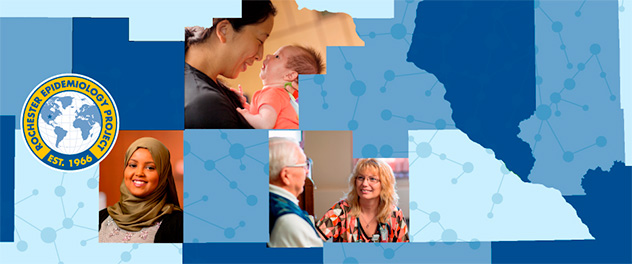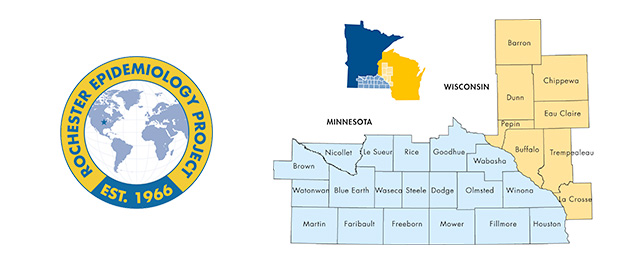Rochester Epidemiology Project
-

Improving health globally by studying health locally
Medical records information gathered from generations of local patients in the Rochester Epidemiology Project helps researchers solve large-scale medical questions, such as the causes of specific diseases and the best current and future treatments.
-

A unique public health resource
Since 1966, the Rochester Epidemiology Project has linked local participants' medical records, and now includes approximately 2.9 million individual patient records from 27 counties in Minnesota and Wisconsin.
The Rochester Epidemiology Project (REP) is a unique population health resource and long-established collaborative initiative originating in Olmsted County, Minnesota.
Administratively led by researchers from Mayo Clinic's Department of Quantitative Health Sciences, the REP medical records-linkage system has incorporated the medical records of more than 645,000 Olmsted County residents over the past 50 years.
The REP collaboration includes Olmsted Medical Center, Mayo Clinic, Mayo Clinic Health System, Olmsted County Public Health Services, Zumbro Valley Health Center and several dental practices in Olmsted County. In recent years, the REP has expanded to include a total of 27 counties in Minnesota and Wisconsin, increasing the linkage to include approximately 1.4 million residents in the 27-county region.
The Rochester Epidemiology Project plays an important role in understanding population health. Using medical records information, researchers can identify what causes diseases and how people with certain conditions respond to surgery, medication or other interventions. Information from the REP can even help predict what the future might include for people with specific diseases or medical conditions.
The REP medical records-linkage system has become a treasured resource for many researchers and has played a key role in many long-term research initiatives.
Visit the Rochester Epidemiology Project's main website for more information.
Contact